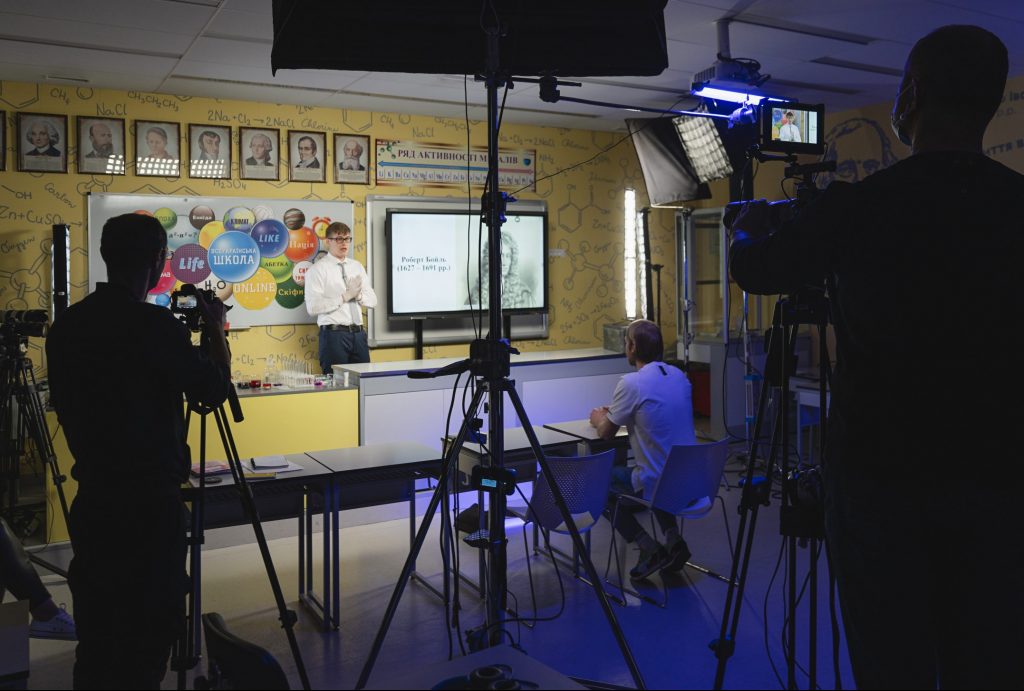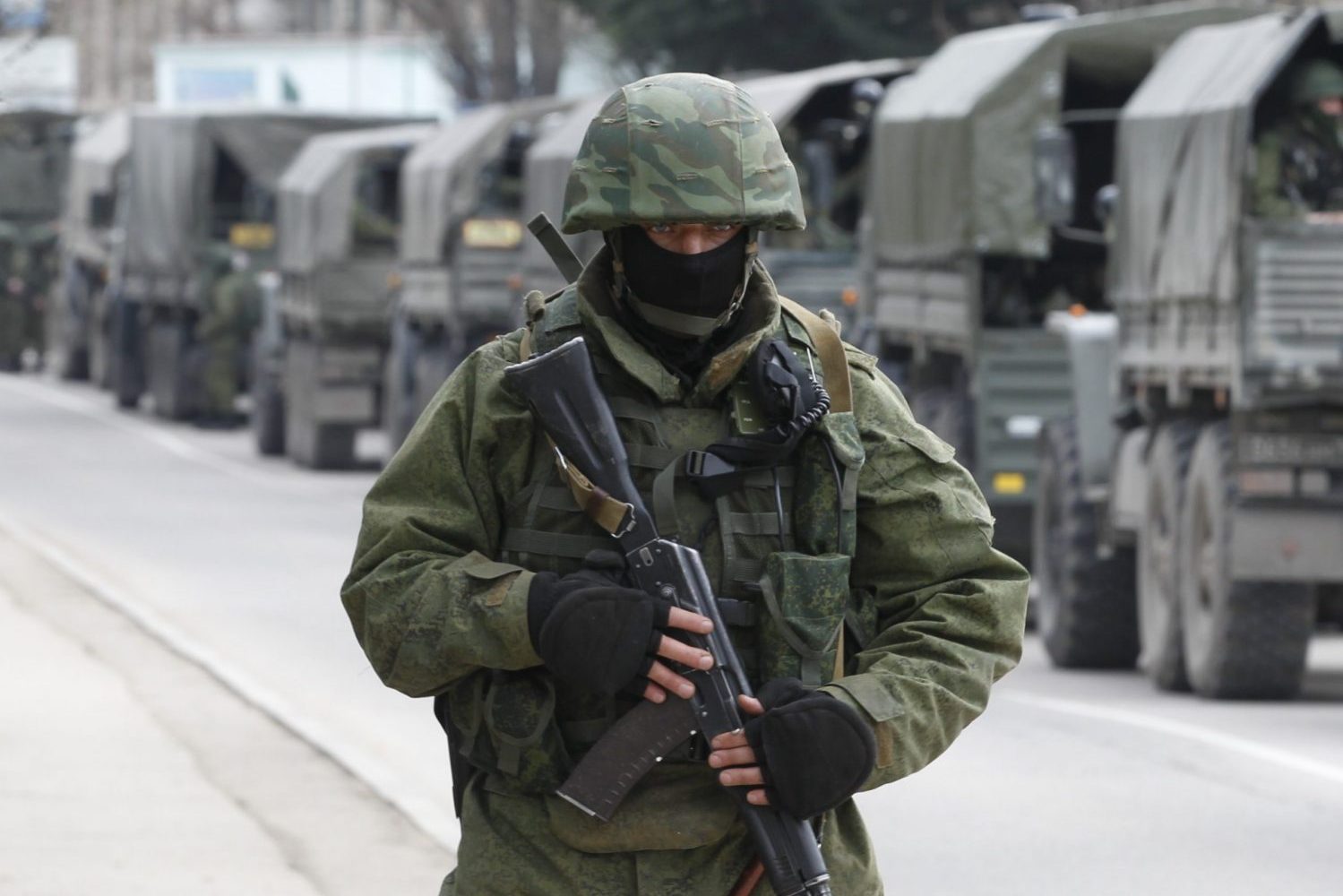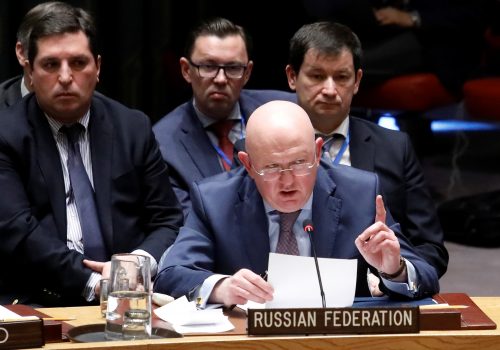On June 12, the first semester of an original educational initiative drew to a close as the Ukrainian Online School project held its last classes before the summer break. Launched in early April as part of Ukraine’s efforts to adapt to the novel circumstances of the country’s coronavirus lockdown, the project stood out from other online teaching initiatives launched elsewhere around the world in response to the pandemic, as it combined both internet and TV broadcast elements. This improvised solution proved a big hit with Ukrainian schoolkids, attracting hundreds of thousands of subscribers from across Ukraine during just under two months of distance teaching.
Like dozens of countries around the world, Ukraine has spent the past few months struggling to come to terms with the highly unusual circumstances of a comprehensive lockdown that has brought entire sectors of the economy and spheres of everyday life to a standstill. Schools were among the first institutions to close in Ukraine, with classes canceled in mid-March as the scale of the pandemic became apparent. Although school-age children are thought to be the among the lowest risk groups in terms of complications from coronavirus infection, the potential for schools to act as hubs for the spread of the virus meant that closure was among the top priorities as anti-pandemic measures were first introduced.
With almost three months of the traditional September-to-May Ukrainian school year still remaining, this created significant issues for educators looking to prevent the country’s schoolchildren falling behind. Many individual Ukrainian schools responded to the challenge by organizing online classes for their students, but due to a range of factors including varied internet access and other logistical challenges, this was not always an option.
Stay updated
As the world watches the Russian invasion of Ukraine unfold, UkraineAlert delivers the best Atlantic Council expert insight and analysis on Ukraine twice a week directly to your inbox.
In order to make sure those without easy access to online classes were not left out, work began on the Ukrainian Online School project on April 6. A team of 80 teachers from Kyiv and the surrounding Kyiv region came together to plan and prepare lessons. Classes covered 14 different subjects including Ukrainian language and literature, history of Ukraine, world history, art, and science, and catered to students at every stage of the Ukrainian education system ranging from year one to year eleven. In many cases, teachers were joined by Ukrainian celebrities who offered their support to the Ukrainian Online School project and took part in lessons.
The project was a joint undertaking involving the Presidential Office, the Ministry of Education and Science, Ukrainian NGO Osvitoria, and UNICEF. Ministry officials oversaw the curriculum and the Presidential Office provided the full spectrum of technical support including everything from camera operators to video editors. Meanwhile, Osvitoria offered access to a fully equipped private school for filming purposes, and UNICEF provided support for lessons aimed at primary school children.
The concept of online education is not in itself particularly innovative, of course. However, Ukraine’s approach to teaching during the coronavirus lockdown involved a degree of multimedia innovation in order to account for the realities of the country’s imperfect internet infrastructure. According to figures from Factum Group Ukraine, only 65 percent of Ukrainian households currently have a home internet connection. This immediately makes online lessons inaccessible for around one-third of Ukrainian kids, with rural areas particularly likely to suffer from limited connectivity.
An additional practical obstacle to online education is the number of suitable devices per household. While a majority of Ukrainian homes have access to the internet, many families have a limited number of digital devices that could be used for online lessons. With millions of Ukrainian parents also struggling with the practicalities of the coronavirus lockdown and attempting to work from home, many children faced stiff competition for access to computers or other gadgets. This meant that live online lessons were not always a realistic proposition.
Eurasia Center events

The solution was a multimedia approach, with classes initially recorded and posted in video format to an official YouTube page. Lessons were also broadcast every morning on Ukrainian TV via partnerships with a number of Ukrainian channels which agreed to dedicate two hours per day to educational programming. This combination of TV and online accessibility provided all Ukrainian schoolkids with the chance to benefit from Ukrainian Online School lessons. No restrictions were placed on access to lessons, and children from schools offering their own online courses were also welcome to become involved.
With the arrival of the summer break, it is now possible to begin assessing the impact of the Ukrainian Online School initiative. As a result of the project, the Ministry of Education and Science’s YouTube channel now has 241,000 subscribers. The materials produced over the past few months will continue to be of use, with over 1,700 lessons for schoolchildren of all ages now available free of charge online.
The initiative has also proved popular with many parents. For some, it represented an opportunity to study alongside their kids for the first time. For others, the daily TV broadcasts offered a rare two-hour interlude during a period of lockdown when personal time was at a premium. In that sense, it may actually have had a positive impact on the Ukrainian economy by boosting productivity. Most of all, however, the initiative helped minimize the negative impact of the coronavirus crisis on a generation of Ukrainian schoolchildren.
Veronika Selega is Director General of the Directorate for Humanitarian Policy at the Presidential Office of Ukraine.
Further reading
The views expressed in UkraineAlert are solely those of the authors and do not necessarily reflect the views of the Atlantic Council, its staff, or its supporters.

The Eurasia Center’s mission is to enhance transatlantic cooperation in promoting stability, democratic values and prosperity in Eurasia, from Eastern Europe and Turkey in the West to the Caucasus, Russia and Central Asia in the East.
Follow us on social media
and support our work
Image: The Ukrainian Online School initiative was Ukraine's response to the closure of schools due to the coronavirus pandemic. It featured both online lessons and TV broadcasts to make sure no child was left out. (Courtesy photo)




